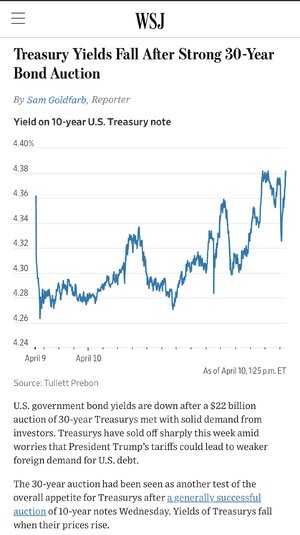Centerpiece
Inconceivable Member
- Messages
- 3,258
Well, the stock markets sure forfeited much, thats for sure.My expectation is for a flurry of trade deals to be announced over the coming weeks. They will be claimed as big victories, but won’t actually be much of a change from the existing arrangements.
The US folded less than a week after the tariff announcement and mere hours after the tariffs took effect, forfeiting much of the leverage we might have had.



